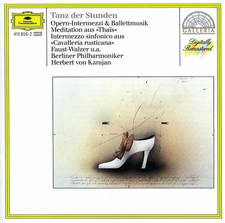The Full Works Concert - Monday 30 September 2013
Rachmaninov's little-heard Piano Concerto No.4 and Mahler's first symphony are among the highlights of tonight's Concert.
Tonight's concert begins with Mozart's overture to Don Giovanni. Legend has it that he wrote the overture on the morning of the opera's première, while suffering from a hangover. Realising the overture was still to be written, his wife Constanze plied him with punch on the night before the opera was scheduled to open, and read him stories to keep him alert while he began work on the overture. Eventually at three in the morning, Mozart begged Constanze to let him sleep for an hour. At five she woke him and he set to work again. Two hours later, he delivered the overture, fully orchestrated, to the copyists.
Rachmaninov's Piano Concerto No.4 in G minor is probably the least known of all of his piano concertos. One reason may be that it is quite difficult to grasp on a single hearing - only the second movement contains a prominent melody. Like most of Rachmaninoff's late works, the concerto has a distinctive jazzy quality. It's often said that Rachmaninov was present at the New York premiere of Gershwin's Rhapsody in Blue 1924 and that he was a faithful and longtime enthusiast of Paul Whiteman's jazz orchestra, which hosted the premiere. He mainly wrote this concerto in New York and finished it in Europe. It's evident that the composer had naturally been affected by the sights and sounds of the USA where he had resided for several years.
Bach's Brandenburg Concertos were written between 1708-1721 for Christian Ludwig, Margrave of Brandenburg, and are based on the Italian concerto grosso style. Bach took the concerto grosso form to new heights. He gave each instrumental family solo opportunities and created unusual combinations, like the virtuosic violin lines in the lofty No. 4 which we hear tonight.
Mahler's first symphony shares a musical link with his earlier song cycle, 'Songs of a Wayfarer' – and it’s the wayfarer whose journey can be followed through the symphony’s four movements. In the first movement he is walking in a forest on a lovely spring day where, according to Mahler (pictured above), the sunlight sparkles and shimmers. By the second, our protagonist seems to be positively striding along. Although you can still hear birdsong, this scherzo is building to something more ominous. The third movement sinks to a funereal pace. The mood is finally broken in the fourth and final movement, with the crashing of the trumpets and trombones – what Mahler called ‘the cry of a wounded heart”, but this gives way to a lush romantic theme, as if the wayfarer is recalling his love and reminiscing more happily about his past, giving way to the end of heartbreak and a final glorious massive climax.
Wolfgang Amadeus Mozart: Don Giovanni – Overture
Yehudi Menuhin conducts Sinfonia Varsovia
Sergei Rachmaninov: Piano Concerto No.4 in G minor
Piano: Stephen Hough
Andrew Litton conducts the Dallas Symphony Orchestra
Johann Sebastian Bach: Brandenburg Concerto No.4 in G major
Claudio Abbado conducts Orchestra Mozart
Gustav Mahler: Symphony No.1 in D major
Michael Tilson Thomas conducts the San Francisco Symphony Orchestra











